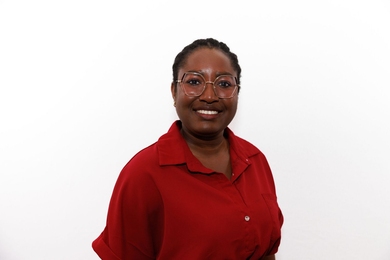On Dec. 23, MIT Chancellor Phillip Clay announced that Student Support Services (S^3) will now report to the Office of the Dean for Undergraduate Education (DUE). This administrative change was based on careful consideration of the November 2009 final report of the Student Support Services (S^3) Task Force.
The recommendation of moving S^3 under DUE was one of five potential options identified by the S^3 Task Force. The chancellor felt this option places S^3 close to many of the resources the office draws upon to help students while accomplishing the key organizational goals of the S^3 Task Force. These goals included strengthening links between S^3 and the academic side of MIT.
The chancellor also explained that while S^3 will formally report into DUE, DUE and the Division of Student Life (DSL) will collaborate in order to ensure S^3 will continue to provide high quality support services in both student life and academic support. Specifically, DUE and DSL will convene a joint working group to serve this goal.
At the same time, the chancellor will move ahead on a key recommendation by the Task Force to appoint and seek advice from an S^3 Faculty Advisory Committee. The Task Force Report makes several recommendations around S^3 communication, services and processes. The Faculty Advisory Committee will ensure that the recommendations are appropriately carried out.
The S^3 Task Force was appointed in August 2009. Comprised of the student deans, faculty, students and staff, and co-chaired by Eric Grimson, head and professor in the Department of Electrical Engineering and Computer Science; and Steve Lerman, vice chancellor and dean for graduate education, the task force reviewed and assessed the office’s:
The recommendation of moving S^3 under DUE was one of five potential options identified by the S^3 Task Force. The chancellor felt this option places S^3 close to many of the resources the office draws upon to help students while accomplishing the key organizational goals of the S^3 Task Force. These goals included strengthening links between S^3 and the academic side of MIT.
The chancellor also explained that while S^3 will formally report into DUE, DUE and the Division of Student Life (DSL) will collaborate in order to ensure S^3 will continue to provide high quality support services in both student life and academic support. Specifically, DUE and DSL will convene a joint working group to serve this goal.
At the same time, the chancellor will move ahead on a key recommendation by the Task Force to appoint and seek advice from an S^3 Faculty Advisory Committee. The Task Force Report makes several recommendations around S^3 communication, services and processes. The Faculty Advisory Committee will ensure that the recommendations are appropriately carried out.
The S^3 Task Force was appointed in August 2009. Comprised of the student deans, faculty, students and staff, and co-chaired by Eric Grimson, head and professor in the Department of Electrical Engineering and Computer Science; and Steve Lerman, vice chancellor and dean for graduate education, the task force reviewed and assessed the office’s:
- Scope of services, organization, and reporting relationships;
- Coordination of services with other offices in DSL, DUE, and MIT Medical;
- Communication with faculty on individual cases and on policies and procedures;
- Relationships and communications with stakeholders;
- Outreach and prevention activities.





